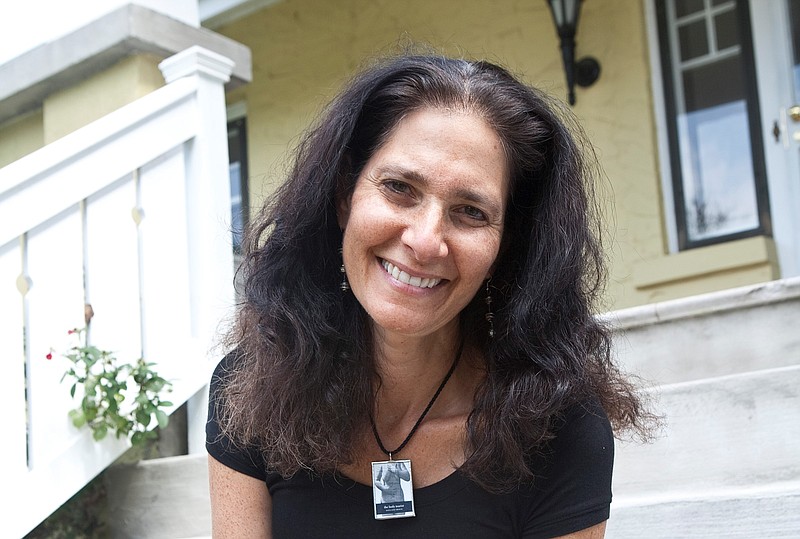My friend Cindy from Cincinnati was here for a few days during a break from her busy art festival schedule. We were sitting in the living room, talking about art making, when she told my husband and me about a recent piece she'd been working on. Like many of her paintings, it was of a woman with explosive hair, beneath which was a pensive face. She was clothed in an extraordinarily colorful gown, the kind you can't find anywhere except in Cindy's vibrant imagination.
But there was a problem, Cindy said. "When I sketched it out, I made the woman's head too small."
Ignoring the obvious metaphor - who of us hasn't prematurely attributed a small mind or a big head to someone - the fact was she had, literally, drawn the head too small. It was out of proportion to the rest of the woman's body, and Cindy knew it before she began the laborious process of adding handmade papers, inks and paint, all of which go into making her paintings the richly textured and distinctive works they are.
Nevertheless she, like Elizabeth Warren in her 2017 speech on the Senate floor, persisted. Which was a great idea when Warren did it, but not so much when Cindy did it.
"I should have started over as soon as I realized the head was too small," Cindy said, "But I didn't want to start over. I told myself it would be fine, that I could make it work."
She could not make it work. Hours were wasted, many of them by Cindy sitting in her chair in her studio, staring out the window and wondering why she "just didn't feel like" painting. At last, she faced the reality of the too small head and started over. She made the head bigger - which took very little time - and lo and behold, the rest of the painting came together.
I once bought a car I hated the moment I got home from the dealership. It was a light gray Geo Tracker, a tiny, jaunty, Jeep-like car barely big enough to hold my 95-pound Great Dane/lab mix, my 45-pound hound and my 40-pound mystery dog. But the main problem I had with the car was that it was cute, and I was not a cute-car person, something I would not realize until the sale was final and I pulled into my driveway an hour later, got out and looked at the car in the harsh light of ownership.
"Trade it in," my boyfriend advised. I refused. I would lose too much money, I said. I would just tolerate the Tracker for a decade and buy a non-cute car the next time around. In other words, I would learn from my mistake, but first I would punish myself every single day for 10 years.
"Trade it in," he said again. "Take the hit up front in money and not for the next 10 years in regret."
Reader, I traded it in. I got a shiny black Nissan extended cab pickup truck instead. I loved that truck up until the moment I had to sell it, 12 years, 200,000 miles and one marriage (to the wise boyfriend) later. It was a great decision. The dogs had a big, camper top-covered bed in the back for long trips. There was room for groceries behind the front seat. I did not look like a grown woman in a teenager's beach jalopy. Yes, I lost some money, and yes, I felt bad about it for a little while, but instead of feeling unhappy and mad at myself every time I had to drive somewhere for the ensuing 12 years, I felt pleased and happy.
Most importantly, I learned a great life lesson: The minute you know for sure you're on the wrong road, get off. Back up, change course, or make a new decision, but do not, under any circumstances, continue in a direction you know in your heart is wrong.
Of course, there are times when staying a course might be called for: Things can (or should) be worked out, or we stand to learn something important by not bailing. Still other decisions can be reversed, but only by bringing great harm or distress to oneself or others.
This isn't about those decisions. This is about those undeniably bad ones we make and then regret that have an obvious (or even not-so-obvious) off-ramp, if only we will use it. Maybe it won't be painless. Maybe we will even feel great distress. But the long-term trade-off will almost always be worth it. There are times when staying a course proves commitment and maturity. But there are times when making a hasty exit is the most artful thing we can do.
Dana Shavin is the author of "Finding the World: Thoughts on Life, Love, Home and Dogs," a collection of 20 years' worth of her columns. Email her at danaliseshavin@gmail.com, and follow her on Facebook at Dana Shavin Writes. More at Danashavin.com.

